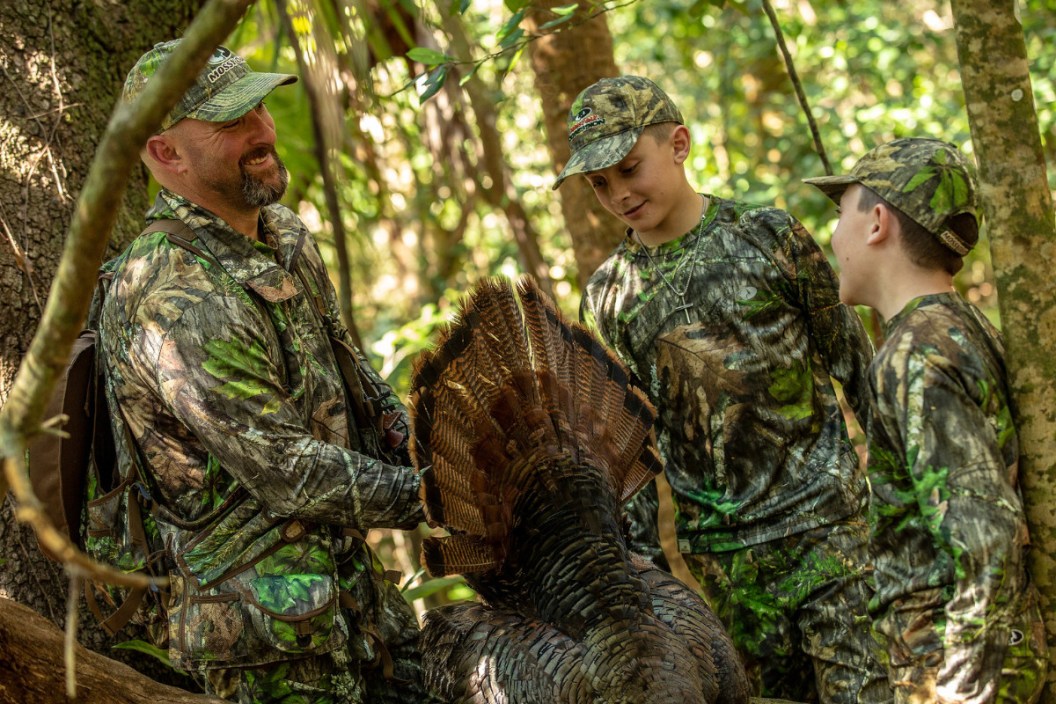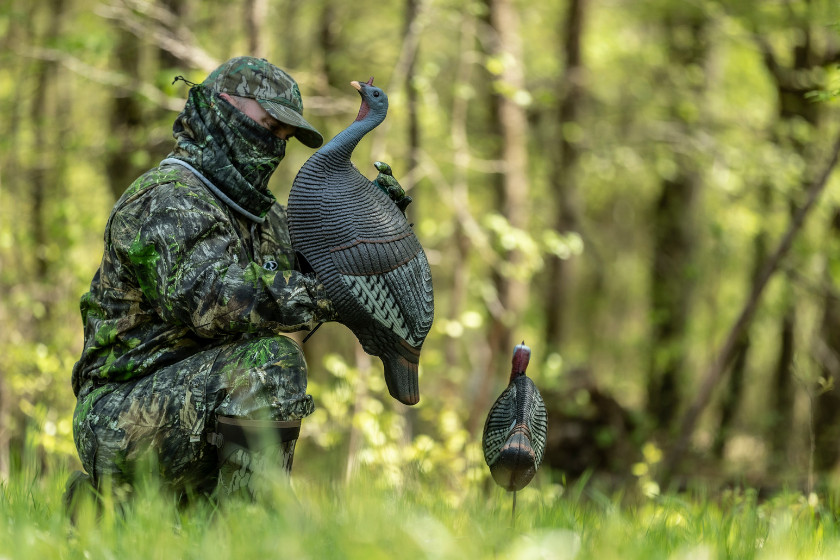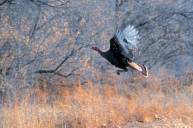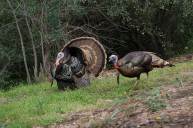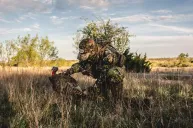Take your deer hunting know-how to the turkey woods this year with the following tips!
As deer seasons across the country start winding down in January and February, many hunters' minds start shifting towards their favorite bird, the wild turkey. The two to three month gap between deer season and turkey season may be grueling. However, it is a perfect time to start preparing for your spring season. And with deer season fresh on your mind it is easy to carry over some of those tactics and motivations into your turkey season.
In fact, it may be easier than you think to utilize some of those tactics. Even if you never thought of doing it before.
For those making the trip to the turkey woods this year, here are three tips a deer hunter can take from those seasons into spring turkey season.
Scout Early, Often, and with a Plan
In order to hunt and harvest turkeys consistently you have to know where they are and what they are doing. Scouting for turkeys is similar to scouting for deer but there are few different things to look and listen for. First off, scouting for turkeys should start while you are still in the thick of deer season. When you are in the woods, pay attention to where you see turkeys, or find sign of these game birds such as tracks, droppings, and scratchings. Remembering these things will come in handy while preseason scouting.
Most of my March scouting is devoted to glassing for turkeys while driving. Keep binoculars or a spotting scope in the vehicle at all times. This is important when you have access to large pieces of land. It really doesn't matter if your hunting areas are a single large swath of private land, or you do all your hunting on public. Some low impact driving and glassing could let you know what areas birds are frequenting, just like it does when you hunt deer.
After you've located some birds, it is time to start listening for roost sites at dawn and dusk. I'll make ten to fifteen different preseason trips before work and I'll also go out on weekends to listen for turkeys. Identifying roost sites and roosting patterns will increase your odds of finding the right place to set up on opening day.
Also, it is important to remember that scouting throughout hunting season is vital to staying up to date. Turkey seasons are short but a lot can change in where turkeys frequent and how they behave. Scouting can put you ahead of the game and also keep you there.
When Birds are Quiet Try an Ambush Hunt
Having a Tom gobble all morning is awesome. It doesn't necessarily mean that you'll be able to close the distance on him but you can at least chase him all day. This type of experience is what draws people to turkey hunting. Unfortunately, this isn't how it always plays out.
There are many days that turkeys don't gobble and the woods are dead. It starts to feel more like hiking than hunting. And considering a turkey's small stature and incredibly keen eyesight, it is very difficult to stalk up onto one in the open woods. This is a great time to try a deer hunting style ambush hunt.
Scouting intel comes into play here. If you know where birds are feeding or strutting late in the morning, that is where you need to be. Make a set up in these areas and do some calling. Little calling is needed, just a few yelps here and there will do the trick.
Remember to take time to improve the quality of your setup. Try to avoid just sitting on the face of a lone tree in the woods. Using a blind, building a natural blind, or settling in to a natural hidey hole will keep you out of the turkey's sight.
Like in deer hunting, ambushing turkeys requires patience. If you are willing to sit and wait on a deer, try it with turkeys.
Change Your Strategy as the Season Gets Later
Deer hunting strategies often correlate to time of the year. Considering that deer behave differently in each part of the season, hunters have to adapt as the season goes on to stay in the game. Deer season can be broken up into early season, several rut phases, and late season. Turkey season follows its own flow as well.
Turkey season is shorter and in many states, spans only one season. We know there are fall turkey seasons but let's face it, most people focus on the spring seasons. In any case, the shifting from early season to midseason to late season is a lot quicker and can be more subtle than some hunters realize. Different factors such as hunting pressure, weather, and predation will affect the flow of the season as well as what region of the country you are hunting.
In early season it is important to remember that turkeys might still be breeding and hens haven't made it onto their nests yet. If that's the case, the hens might be your greatest competition. Toms also haven't been pressured by hunters yet so it is a great time to move in on a bird and use calling heavily.
By the middle of the season Toms are reacting to the heavy pressure and more hens have moved onto their nests for the spring. This can be an especially hard time of year to hunt considering you are hunting call-shy birds that have decreasing activity levels. This may mean you need to roll with the punches and take what the birds give you, much like in deer hunting the late season.
Remember, in the late season Toms are often very call shy, but they also start to get more active again since the first wave of hunting pressure is dying down. It is imperative to move in as close as you can and keep calling to a minimum at these times. In this way, it's just like late season deer hunting where all the calls and rattling antlers get left at home because the deer are more focused on food.
Conclusion: Consistency is Key
Being a diligent, ever-learning deer hunter comes in handy when wanting to be a successful turkey hunter. Being consistent with scouting, techniques, and adaptability are key. Often times a good hunter is just a good hunter, no matter the species. If you are a passionate, knowledgeable deer hunter, don't be afraid to take what you've learned deer hunting and apply them when turkey hunting.
READ MORE: 4 BEST STATES TO BOWHUNT FOR TURKEYS
